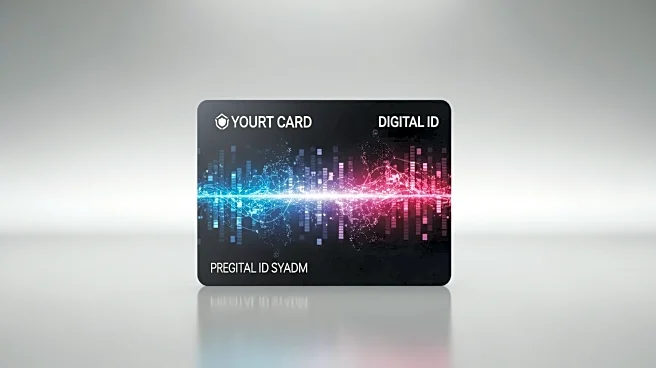What's Happening?
The digital government minister, Ian Murray, has announced the launch of a new electronic version of the ID document for former military personnel. This digital veteran card is accessible via the GOV.UK One Login app and aims to facilitate easier access to public
services while addressing privacy and security concerns. The initiative is part of a broader government plan to introduce a mandatory state-issued digital identity for all employment checks by the end of the decade. The digital veteran card is the first document to be stored in the government's One Login app, with digital driving licenses set to follow.
Why It's Important?
The introduction of the digital veteran card is significant as it serves as a case study for the potential benefits of digital ID technology. It aims to demonstrate the technology's effectiveness in improving access to services and addressing privacy concerns. The move is part of a larger government strategy to digitize various forms of identification, which could streamline processes and enhance security. However, the plan has faced opposition from political opponents and privacy advocacy groups, highlighting the ongoing debate over digital identity's implications for privacy and security.
What's Next?
The government plans to expand the range of digital credentials available, including digital driving licenses, national insurance cards, and other official documents. This expansion is expected to occur over the next few years, with pilot programs and phased rollouts. The success of the digital veteran card could influence the adoption and acceptance of digital IDs across other sectors, potentially leading to broader implementation of digital identity solutions.
Beyond the Headlines
The digital veteran card initiative raises important questions about the balance between technological advancement and privacy rights. As digital IDs become more prevalent, there will be increased scrutiny on how personal data is managed and protected. The government's approach to addressing these concerns will be crucial in gaining public trust and ensuring the successful implementation of digital identity systems.















